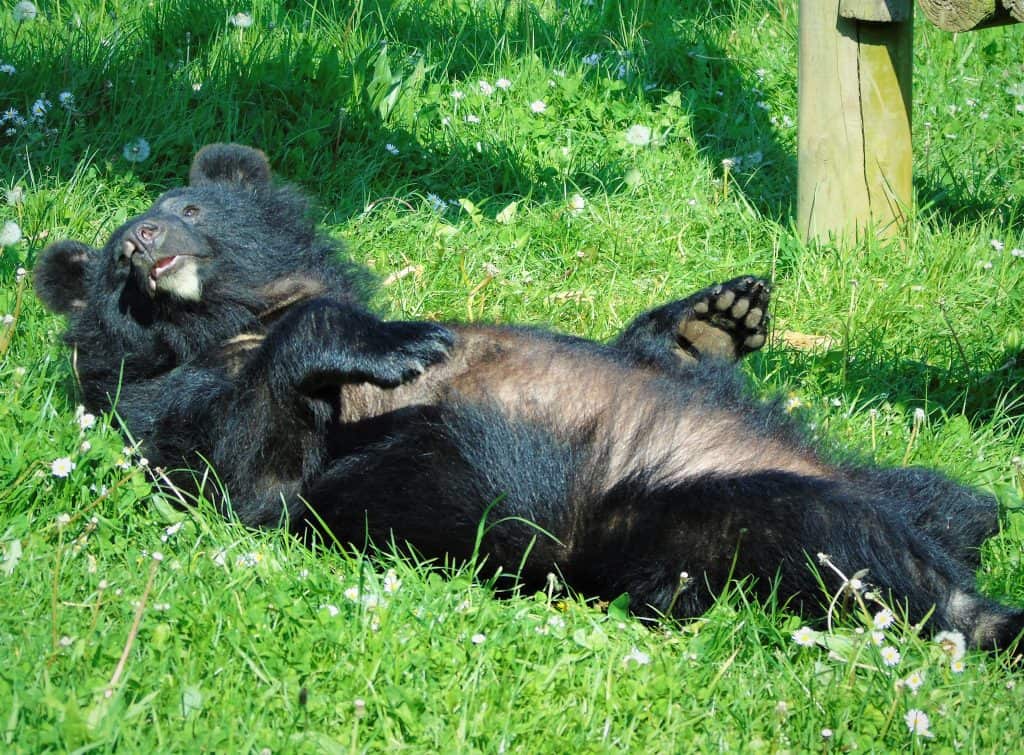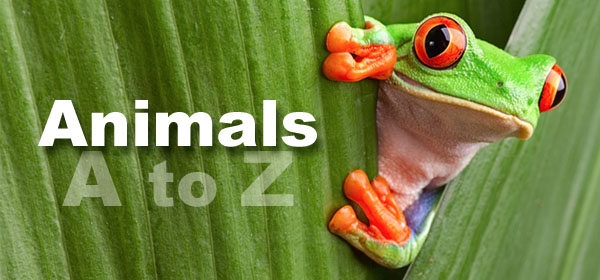The 8th of August every year is Moon Bear Day. It is very special to us as we are the only zoo collection in the UK that houses Asiatic Black Bears and one of only 18 zoos within Europe.
Our Asiatic Black Bears or Moon Bears, as they are sometimes called because of the white crescent shape on their chest, are called Aroon, Mika, and Baloo.

Our Moon Bears
Aroon and Mika are parents to their son Baloo, who currently lives with Mika, his mum, whilst Aroon lives separately.

Due to Baloo being a male cub, we are unable to house Aroon and Baloo together. This is why Baloo is still living with his mum.

The most exploited bears in the world
Moon Bear Day is dedicated to raising awareness about the plight that this beautiful species of bear faces. They are considered one of the most exploited bears due to the bear bile farming industry within South-East Asia.
This practice is used to harvest the bile from the gall bladders of bears whilst they are kept in tiny, cramped cages. Sometimes bears will have been in these cages from very young cubs, and never leave, meaning they could spend up to thirty years within a cage that they are unable to even turn around in sometimes. Bears are sometimes starved and left dehydrated within the bear bile farms as this may increase the production of bile within their gall bladder, meaning more profit for the farmer.
There are a few methods of extracting the bile from bears. These can include catheters being inserted permanently to extract the bile whilst bears are unconscious, and even where open wounds are created within the bear’s abdomen to allow the bile to freely drip out. These methods are extremely painful and can cause the bears untold suffering for years leading to infections, potential tumors, and death.
Moon Bear range
Moon Bears or Asiatic Black Bears are found throughout South-East Asia. The map below is taken from the IUCN Red List website and shows where the Asiatic Black Bear can still be found and where it is now extinct in the wild.


Due to the vast range the Asiatic Black Bear species covers, it is very difficult to put an exact number on how many are still surviving in the will, but the IUCN has set their population as vulnerable with a declining trend in numbers due to habitat loss, deforestation, and hunting.
Protecting Moon Bears
To help protect bears in the wild many South-East Asian governments have put in legislation to prevent the hunting of this species in the wild and made bear bile farms illegal in many countries. There is still a lot of work to do, but hopefully the protection of this beautiful species will prevail and their numbers stabilize.


